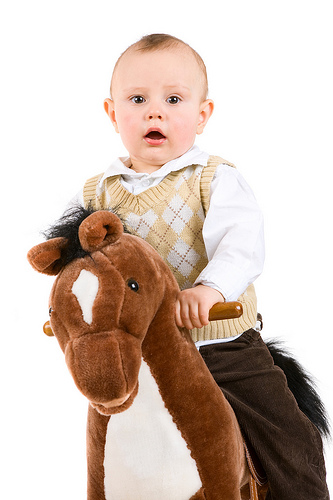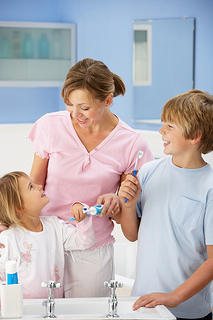April 20th, 2022

During the early days of the environmental awareness movement, those who demonstrated against pollution, toxic chemicals, and the general public health were known as hippies. The early 1970s were a time of change, and assertions that we needed to pay more attention to the Earth's atmosphere were generally dismissed. But within a couple decades, it had become clear that the previous generation was right; the citizens of the world needed to become more environmentally conscious.
Many people feel that they can't make a difference if they don't do something big. But caring for the environment doesn't have to be an all-or-nothing concept. In fact, the little things you do can add up to make a great impact, especially in our community. Here are a few ways you can help the environment on Earth Day, April 22nd and all year around.
Four Small Ways to be Environmentally Friendly
- Recycle Your Textiles. Nearly 21 million tons of textiles are added to American landfills each year, according to the Environmental Protection Agency. Donating your unwanted clothing to a secondhand store or an organization that repurposes fabric helps cut down on solid waste and conserves natural resources.
- Reduce Usage of Disposables. Plastic bottles and bags, disposable diapers and other things we can use and toss out are convenient, but they're not necessary. Simply choosing to replace one of type of disposable with a reusable product can help you cut down on waste that has a large negative impact on our environment.
- Conserve Water. If everyone in the United States turned off the water while brushing their teeth, more than 1.5 million gallons of water could be conserved. Turn the water on long enough to wet your toothbrush for brushing and rinsing, and then immediately turn the water off again.
- Turn Off the Lights. Flip the light switch to "Off" if you're going to leave a particular room for 15 minutes or more. This will conserve energy on incandescent light bulbs and cut down on cooling costs.
It's not necessary to be an activist or install solar panels all over your home to help the environment. Although you can do these things, the little everyday measures make a big difference in helping to conserve energy and the environment, while reducing your carbon footprint. Our team at Pediatric Dental Health Associates, Ltd wants to remind you to celebrate Earth Day and help the environment, knowing that it will benefit your and your children's generation.
April 14th, 2022

Drs. Joanne Oppenheim, Marilia Montero, and Mary J. Hayes and our team know that cavities know no age boundaries, and that is why we recommend a visit to our Chicago office by a child’s first birthday. That also happens to be the opinion of our friends at the American Academy of Pediatrics, as well as the American Dental Association.
Research has shown that more than one in four kids has had at least one cavity by the time they’re four years old. In fact, many children get cavities as early as age two, which is a critical reason why you should pay us a visit sooner rather than later. Your child’s appointment at Pediatric Dental Health Associates, Ltd also covers topics such as the importance of baby teeth, nutrition, development, and any concerns you may have with your child’s dental health. We believe that your child’s first visit with Drs. Joanne Oppenheim, Marilia Montero, and Mary J. Hayes should be an enjoyable and positive one, and we strive to teach good oral care that will enable your child to have a beautiful smile that lasts a lifetime.
To learn more about baby teeth, or to schedule your child’s next visit with Drs. Joanne Oppenheim, Marilia Montero, and Mary J. Hayes, please give us a call today! We look forward to seeing you!
April 13th, 2022

When you were a child, your mother may have instructed you to drink all your milk to build strong bones. Now that you have children of your own, you may hear yourself parroting those instructions you received years ago. Getting enough dairy is essential for young children whose teeth are growing. A child who consumes the recommended daily serving of dairy will develop healthy, strong teeth for the rest of his or her life.
Structure of the Tooth
To fully grasp the importance of dairy for dental health, it is necessary to understand tooth structure. Your teeth are made of living tissues covered by a hard outer shell. The inner dental pulp is fed by blood vessels and connects to a nerve bed in your gums. Surrounding the pulp is dentine, a calcified tissue that is less brittle than the tooth’s outermost layer, the enamel. The enamel layer is the white part of your teeth, 96% of which consists of minerals such as calcium phosphate.
How does dairy help my child’s teeth?
Milk and other dairy products are excellent sources of calcium. Your child’s body deposits this calcium into her growing bones, including the teeth. Calcium contributes to bone growth and strength, and it forms an important part of the solid enamel that surrounds each tooth’s fragile inner pulp. Milk also contains vitamin D, phosphorus, magnesium, and proteins. Magnesium promotes calcium deposits in your enamel, while phosphorus forms a small barrier against acidic foods that cause cavities. Vitamin D and protein are used by a child’s body to build bone tissue and maintain dental health.
How much dairy does a child need?
According to a study conducted by researchers at the University of Connecticut, the majority of Americans do not receive enough calcium. The U.S. Department of Agriculture recommends that children under the age of eight should receive at least two and a half cups of dairy per day. Children older than eight need three full cups — the same as adult men and women. Supplying your child with nonfat milk to drink and yogurt to eat every day is a great way to increase dairy consumption.
Growing children who do not get enough dairy in their diets risk improper tooth development and other dental health problems. Drinking sugary beverages in place of milk causes cavities and tooth decay. As a parent, it is essential to monitor your child’s dairy consumption to ensure he or she grows healthy teeth to last a lifetime.
April 7th, 2022

Depending on how long the thumb sucking or constant pacifier use continues, and how aggressively the child sucks a thumb or the pacifier, it can indeed be an oral health issue. Generally speaking, most children outgrow these behaviors or are able to be weaned off them successfully sometime between ages two and four. When children wean off the behaviors in this age range, long-term damage is unlikely.
Why Kids Suck Their Thumb or Pacifier
Both of these habits are actually a form of self soothing that your child likely uses when he or she is very upset, or feeling stressed, confused, frustrated, or unable to properly express the emotions. If your son or daughters is a regular thumb sucker, or the child wants to use the pacifier almost constantly, it is best to try to taper off these habits at a young age.
If your child continues to suck a thumb or request a pacifier consistently after leaving toddler-hood, this could be a source of concern, and it should be addressed with Drs. Joanne Oppenheim, Marilia Montero, and Mary J. Hayes and our staff. We will be able to evaluate your child's mouth to look for any signs of damage such as palate changes or teeth shifting.
Say Goodbye to Old Habits
In the event that your child is quite reluctant to give up a pacifier or thumb-sucking habit, there are a few things you can do to discourage these behaviors.
- When you notice that your child is not using a pacifier or sucking a thumb, offer effusive praise. This type of positive reinforcement can be much more effective than scolding the child.
- Consider instituting a reward system for giving up the habit. If the child goes a certain amount of time without this behavior, award him or her for being such a “big kid.”
- Employ the help of older siblings or relatives that your child admires. When a child’s role model says that he or she stopped sucking thumbs at a certain age, your child is likely to try to emulate that.






